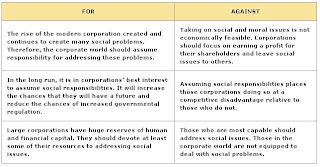Rebalancing of Chinese economy
China is at a crossroads. After experiencing three decades of unprecedentedly rapid GDP growth, the country weathered the global economic crisis exceptionally well. But it sustains considerable economic imbalances, which are undermining its ability to achieve high-income status. The question is whether China’s leaders—preoccupied with challenges like financial instability stemming from risky shadow-banking activities and a heavy burden of local government debt—have the policy space to put the economy on a sounder footing.
In the aftermath of the global economic crisis, China appeared to be on track to complete such a rebalancing. Its current account surplus fell from more than 10% of GDP in 2007 to 2.6% in 2012, and it ran a large capital account deficit for the first time since 1998. Moreover, China added only $98.7 billion to its foreign exchange reserves in 2012, compared with an average annual increase of more than $435 billion from 2007 to 2011. That meant diminishing upward pressure on the renminbi’s exchange rate.
But, over the last year, China’s imbalances returned with a vengeance. Its 2013 trade surplus likely exceeded $250 billion; its capital account surplus exceeded $200 billion in the first three quarters of the year; and its foreign exchange reserves soared by $509.7 billion. Meanwhile, the lower current-account surplus (as a share of GDP) could be a result of its increased investment-income deficit. And, while recovery in the advanced economies boosted exports, persistent overcapacity, combined with slower household-consumption growth than in 2012, caused investment growth, though still rapid, to decline to its lowest rate in the past 11 years.
In principle, a country can run a current account deficit or surplus continuously for decades. But China’s chronic surpluses are problematic. Given that China remains among the world’s poorest countries, with per capita income amounting to less than $7,000, its position as the world’s largest exporter of capital signifies a gross misallocation of resources.
In fact, after running twin current and capital account surpluses persistently for two decades, China’s foreign exchange reserves are poised to break the $4 trillion threshold, with the marginal cost of every dollar accrued vastly surpassing its potential benefits. In this context, the continued accumulation of foreign exchange reserves is clearly counterproductive.
Of course, rebalancing China’s economy will take time, and it will entail some risks and sacrifices. But China’s leaders must recognize that the country faces massive welfare losses, and thus should be willing to accept slower growth in the short term in exchange for a more stable long-term growth path. In fact, with a well-designed policy package, the duration and impact of the growth slowdown could be minimized.
A critical first step is for the People’s Bank of China to stop intervening in the foreign exchange market, which would halt the growth of the country’s foreign exchange reserves. In other words, China should adopt a floating exchange rate regime as soon as possible.
Although this transition would have a negative impact on China’s economic growth, it would not be nearly as dire as many seem to believe. For starters, while it would likely cause the renminbi to strengthen, the consensus in China is that the current exchange rate is not far from the equilibrium level, meaning that the appreciation would likely be moderate.
Likewise, although renminbi appreciation would diminish export growth, the slowdown would probably not be dramatic, given that China’s export sector is dominated by the processing trade (specifically, the assembly of intermediate inputs imported from countries like Japan and South Korea). And the accompanying increase in imports is unlikely to damage China’s economic growth significantly; it is more likely to complement, rather than substitute for, domestic demand. In short, China can afford the costs of rebalancing.
Given that the liquidity flowing into China over the last several years was increasingly short-term capital aimed at exchange rate and interest rate arbitrage (so-called “hot money”), there may be a surge in capital outflows when appreciation expectations have disappeared. To prevent large-scale capital flight from threatening China’s financial stability, cross-border flows must be managed carefully.
A flexible exchange rate dictated by market forces would eliminate the opportunities for currency speculators to make one-way bets on renminbi appreciation, thereby diminishing the stock of hot money that currently accounts for the bulk of China’s capital account surplus. Even if China’s current account remained in surplus for some time, the shift from twin surpluses to a more normal external position would boost the efficiency of resource allocation considerably.
For too long, China has delayed the necessary adjustment of its balance of payments structure. It is time to make a change, even if it requires bracing for some risks.

Comments
Post a Comment